QuestionI have two dogs, one is seven, and one is thirteen. My seven year-old, Rascal, is a wonderful dog. He's an Australian Shepherd, and we've had him since he was a puppy. I raised and trained him, and he's extremely obedient and smart. However, when he was young and during the crucial periods of his puppyhood, he wasn't socialized properly. I was too young to do anything about it at the time, and I didn't know better anyways. He can be aggressive towards other dogs, he's never hurt another dog, but I've never let it get that far. Granted, he's never met another dog on neutral territory, or in a 'proper' way (because he's never needed to meet another dog), so I can't totally say one way or another what he would do under those circumstances.
My other dog, Tucker, is a Border Collie mix, and he is thirteen. He LOVES other dogs. LOVES them. Will not leave them alone. He follows Rascal around everywhere. Tucker only has one eye, so in a way, Rascal is his seeing eye dog, and as he gets older he will probably become even more dependant on him. Normally he doesn't get along with other dogs, because he won't leave them alone. But I don't see this as being a big problem with a puppy.
I have yet to get my puppy, but I do plan on getting one soon. I really need to know how I can give both my dogs the best chance of getting along with the puppy. I'm prepared to do pretty much anything, because I want this to work out. I'm ready to take any advice. =D Thank you in advance!
AnswerHi, Brooke,
It's a bit of a shame about Rascal's socialization, but it's not as serious as some of the literature (now a bit outdated) would suggest. In fact, we've stopped referring to them as critical windows, or crucial periods, they're just periods when the dog is more sensitive to gaining social skills. The gist of it is that Rascal already knows the grammar of socialization. He learned it before he left the litter. He's just a bit rusty on some of the vocabulary.
So how do you build his vocabulary? By giving him as many opportunities for socializing as you can, as long as they're safe for the other dog. In other words, you should probably set up some situations where he CAN meet another dog on neutral territory. Set things up beforehand with the other dog's owner so that you can find a dog who's not going to react to Rascal's nervousness. And don't scold or punish Rascal for feeling nervous. That's kind of like scolding a guy on crutches for not walking properly.
In fact, whenever I'm working with an aggressive dog, I'll constantly praise him when he's meeting a new dog (or trying to). I'll continue praising him even if he starts to growl and tense up (though if he gets to baring his teeth the praise has no effect so I'll quit that tactic and try to redirect him into playing a game of chase with me). In fact, it's the times when the dog is feeling anxious that need praising more than when he's relaxed and happy. Praise makes a dog feel good, and fosters positive social feelings. It's hard to feel those kinds of feelings and feel aggressive at the same time.
Here's a link to an article explaining how praise can be used in this way: http://www.tiny.cc/praise622
Since the main reason you want to sharpen Rascal's social skills is so that he'll behave himself around the new puppy, it's important to know that older dogs will sometimes "correct" a puppy simply because the pup is showing too much exuberant, youthful energy. Generally speaking, Rascal should be praised for doing this as long as he's just showing the pup some "attitude" and not actually attacking him.
It might also help to know that aggression is always based on fear or anxiety, and that playing games like fetch and tug have a very strong tendency to reduce anxiety in dogs. Why? In nature, a wolf pack's stress levels are designed to be reduced by searching for, stalking, chasing, and killing large prey animals. Since dogs share almost identical DNA with wolves, and since most of them don't need to hunt in order to make a living anymore (they get their food in a bowl), whenever tension builds up, anything that simulates some aspect of the predatory sequence will have a strong tendency to reduce that tension and stress.
You should always play these games outdoors. You should also always let Rascal win at tug, and praise him enthusiastically for winning.
Another link: http://www.tiny.cc/tug
I hope this helps! Let me know if you have any further questions.
LCK

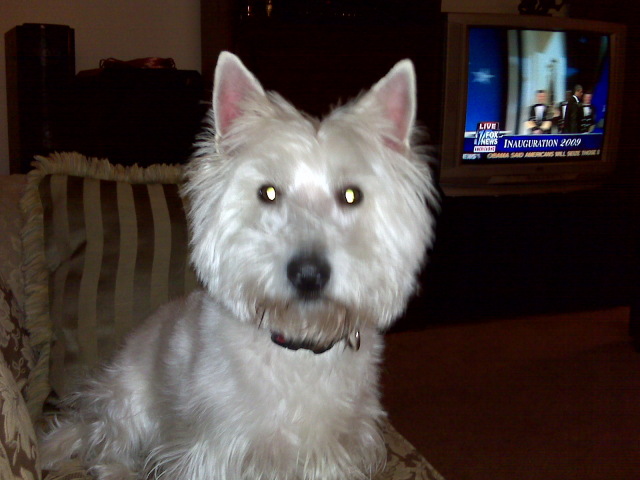 Companion for Lonley Westie
Question
Shannon
We have a 5-year-old neutered Westie w
Companion for Lonley Westie
Question
Shannon
We have a 5-year-old neutered Westie w
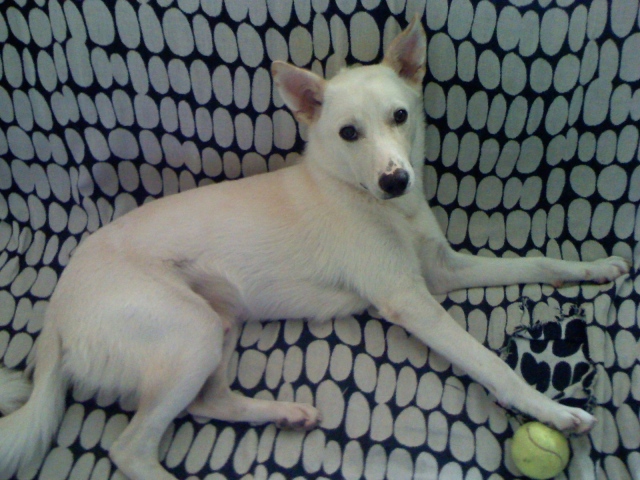 Dog walking problems
Question
Snickers
I have been trying to train my dog SN
Dog walking problems
Question
Snickers
I have been trying to train my dog SN
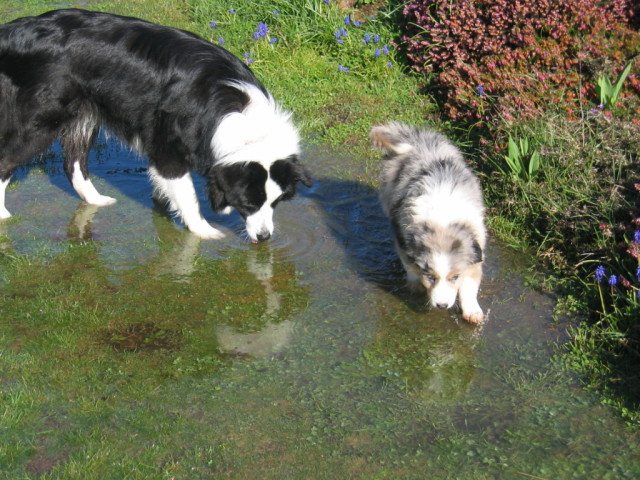 Dog in Heat?
QuestionLily and Jorge
QUESTION: Hello,
We have
Dog in Heat?
QuestionLily and Jorge
QUESTION: Hello,
We have
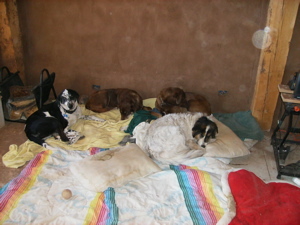 Sudden aggression within pack after a death
Question
Sudden aggression in o
We have an approximatel
Sudden aggression within pack after a death
Question
Sudden aggression in o
We have an approximatel
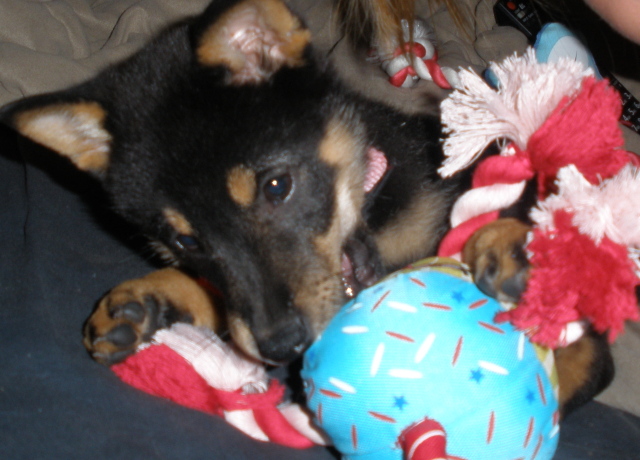 My Shiba Inu
Question
Lola
I bought a registered Shiba Inu puppy fro
My Shiba Inu
Question
Lola
I bought a registered Shiba Inu puppy fro